- Home
- Patrick Robinson
Kilo Class am-2 Page 5
Kilo Class am-2 Read online
Page 5
It would take him three days to change his mind. The red life buoy was proof that the Cuttyhunk had sunk unless some really fast-thinking member of the ship’s crew had secretly heaved the life buoy over the side during the attack, as a last signal to the outside world. The notion was so remote it took another week to fully germinate and for Freddie to accept it as a potential truth. And it did so, just before Freddie sat down in Hyannis to write the first of an outstanding series of syndicated articles centered around the menacing, frozen island at the end of the world.
2
Vice admiral Arnold Morgan, at age fifty-eight, was wryly amused by the opulence of his new office at the White House. For a man whose background was nuclear submarines, and the functional operations rooms of the National Security Agency in Fort Meade, Maryland, the carpeted hush of his well-appointed quarters in the home of the President was a culture shock. Also, people were apt to look a bit startled when he yelled at ’em.
After a lifetime in the US Navy, the burly, five-foot-eight-inch Texan had been extremely circumspect about taking off the dark blue for the last time and accepting the exalted Presidential post of National Security Adviser. But he respected and admired the southwestern Republican President who had appointed him. Where some presidents seek to dissociate themselves politically from the military, this well-educated ex-Harvard law professor from Oklahoma had always embraced the armed forces and had drawn admirals and generals into the heart of his administration.
Arnold Morgan and the President had worked closely together during a particularly disagreeable Black Operation the previous year. Less than three weeks after its conclusion, the President had confessed to some of his closest staff members that he really missed talking regularly to Morgan. “He’s such a cantankerous old bastard,” he said. “Doesn’t trust any foreign country except the UK, and them no further than he can kick ’em; calls people up in the small hours of the morning and is mostly too bad-tempered even to say good-bye on the phone. But a truly impressive mind. And a walking encyclopedia on world naval power.” Robert MacPherson, the Secretary of Defense, was also an admirer of the Admiral, and despite a few misgivings by the rather more refined Harcourt Travis, the Secretary of State, it was agreed that Admiral Morgan should be brought into the White House. Travis had raised no serious objection, stating drolly that he had to admit that Britain’s Neville Chamberlain “would have been considerably better off if he’d taken Admiral Morgan with him to meet Hitler in Munich in 1939.” It took almost a year to disentangle the Admiral from the front line of the US intelligence service, but he was now firmly established in the deeply carpeted inner sanctum of the West Wing.
The Admiral did not, by instinct, trust the Beijing government, and he trusted foreign submarines even less. The fact that the Kilos were being constructed in Russia, a nation he bitterly mistrusted, had the effect of accelerating his irritation with the current situation to the third power.
“Fuck ’em,” he growled. “We’re not having it.”
He stood up and pulled on his new dark gray civilian suit jacket, which had been cut for him by a military tailor. He strode out of his office, his black lace-up shoes gleaming, the brisk, unmistakable gait of a senior Naval officer betraying his past. That and his severely cut gray hair, and his way of staring straight ahead as he went forward. When Admiral Morgan set sail from his White House office he looked as if he were about to head into battle.
“Goddamned Chinese,” he snapped as he passed a new portrait of President Eisenhower, who he considered would probably have understood. And he continued muttering irritably. “Napoleon said it. And he said it right: when the Chinese giant awakens, the world will tremble. I’m not sure who’s going to be doing the trembling, but it’s not going to be the US of A.”
At the West Wing entrance, Morgan’s car and driver awaited him. “Morning, Charlie,” he said. “Pentagon. CNO’s office. Gotta be there at 1030.”
“SIR,” Charlie snapped back, like a cowed midshipman. He had never before driven a senior military man until the Admiral’s arrival, and he had not yet recovered from their very first meeting. Charlie had shown up two minutes late on Morgan’s first day in the office and could hardly believe his ears when Arnold Morgan had growled in menacing tones, “You are adrift, late, AWOL, slack, and useless. If anything like this ever happens again, you are fired. Do you understand me, asshole? My name is Admiral Arnold Morgan, and I have a goddamned lot on my mind, and I will not abide this kind of bullshit from anyone, not even if he works in the fucking White House.” Charlie Patterson nearly died of shock. A month later, he was still afraid of the Admiral. From that first encounter, he was inclined to show up twenty minutes early for all of his assignments with the new National Security Adviser. The story of his confrontation with the tyrant from Fort Meade had whipped around the White House like a prairie fire. Even the President knew about it.
Charlie Patterson gunned the big limousine through the streets of Washington, heading east along the waterfront and picking up 1-395 at the Maine Avenue entrance. They crossed the Potomac and made straight for the United States military headquarters.
Admiral Morgan was well used to the familiar route, but for the past four years he had usually driven himself. A chauffeur was just one aspect of his new life to which he had to become accustomed. The others were the more relaxed office hours and the more regular social obligations. If he missed anything, it was the time he had once spent prowling around in his Fort Meade headquarters, in the small hours of the morning, checking the signals from America’s surveillance posts around the world. He now believed it was entirely possible he might have to locate a new lady to run his life. The years in submarines and then in Naval intelligence had wreaked havoc with both of his marriages. As far as he could tell neither of his two ex-wives, nor even his two grown-up children, were speaking to him at present, the result of years of neglect. With his highly salaried position, he was regarded, alongside the President, as one of the most interesting middle-aged bachelors on the Washington circuit. Dangerous waters for an unarmed former commanding officer, who was having to relearn any vestige of real charm he may once have had as a young lieutenant.
Not that he had time for a romantic involvement now. For years the Navy’s most fearless, and feared, seeker after truth, Admiral Morgan was trying to string together facts that seemed unconnected and incompatible. In the next few hours he was going to sort them out and almost certainly initiate drastic action against two of the world’s most powerful nations.
Charlie slid the car down into the Pentagon’s subterranean garage. The limousine came to a halt outside the private elevator, which ran to the offices of the Chairman of the Joint Chiefs, Admiral Scott Dunsmore, the former Chief of Naval Operations. Admiral Morgan would spend fifteen minutes having a cup of coffee there and then head for the headquarters of the new CNO, Admiral Joseph Mulligan, the former Commander of the Atlantic Submarine Force.
Two US Marine guards were waiting to escort Morgan to the CJC offices. Before the Admiral stepped into the elevator, he turned to Charlie and said, “I might pop out of this door any time between now and 1630. Be here.”
One of the guards risked a slight smile. The Admiral fixed him with a withering eye. “No bullshit, right?” he growled.
“Right, sir,” replied the guard, uncertainly.
Coffee with his old friend the Chairman was relaxed and informal, its purpose merely to brief Scott Dunsmore on the President’s state of mind regarding the China problem. There were no surprises. Admiral Dunsmore had guessed anyway. Admiral Morgan’s briefing of Admiral Mulligan and possibly another privately invited guest would be a meeting of considerably greater detail. By nightfall Scott Dunsmore expected a clear resolution to have been made. It looked like they were heading for a nonattributable “black” operation. The less people knew about it the better.
Outside the CNO’s office, a young flag lieutenant informed Admiral Morgan that Admiral Mulligan would be about ten minute
s late. He had cleared the Navy yards in a chopper a short while ago and was on his way here. “I’ve just spoken to him, sir. He said to go right in, and he’ll be as quick as he can.”
Arnold Morgan walked into the outer section of the CNO’s quarters and saw a uniformed Naval officer waiting, reading the Washington Post. Directly above his line of medals he wore a small submarine insignia on which were set twin dolphins, the fabled attendants of the sea god, Poseidon. Admiral Morgan glanced immediately at the three golden stripes with the single star on the sleeve, offered his hand in greeting and said, “Morning, Commander. Arnold Morgan.”
The big man in the armchair stood immediately, shook hands, and said, “Good morning, sir. Cale Dunning, Columbia.”
Admiral Morgan smiled. “Ah yes, Boomer Dunning, of course. I’m delighted to meet you. You probably know, I used to drive one of those things.”
“Yes, Admiral. I did know. You were commanding one of ’em when I first left Annapolis back in 1982. Baltimore, wasn’t it?”
“Correct. She was brand-new then. Not so refined as your ship, but she was a damned good boat. There’s a lot of days when I wouldn’t mind commanding one again. They were great years for me. Make the most of yours, Boomer. There’s nothing quite like it you know, and you can never get ’em back, once they decide to move you onward and upward.”
The two submariners sat down in opposite armchairs, each one uncertain about bringing up the subject they were both here to discuss. Admiral Morgan had requested the meeting and would essentially take charge of it. He had also suggested that Admiral Mulligan invite Commander Dunning. The two men had never met.
Now Morgan elected not to broach the topic of the Chinese submarines until the CNO arrived. He glanced at the open pages of the Post and asked Commander Dunning if there were any unusually hideous distortions in the paper.
“Not that I’ve hit on so far, sir,” said Boomer, grinning. “Matter of fact I’ve been reading a long article in here about that Woods Hole research ship that vanished last year. I’ve read some stuff about it before by the same guy — Frederick J. Goodwin. Seems to know a lot about it.”
“That’d make a change for a newspaper reporter,” growled the Admiral. “Normally they know just about enough to be a goddamned nuisance.”
Boomer chuckled. “Well, sir, he’s been down to that French island where the ship disappeared. Found the first bit of wreckage, a hunk from a bright red styrene life buoy. Had the letters C-U-T on it. He’s checked back at the base. Cuttyhunk was equipped with life buoys that seem to fit that description.”
“I guess that more or less proves she went to the bottom, eh?”
“This guy thinks not. He’s saying that if she went down, there would have been wreckage all over the place. And since the Navy sent a frigate in to search they must have found something. It was just a few days after the incident.”
“That was kind of unusual. Our frigate was down there sniffing around for three months. Still found zilch. What does he say about the attack that was mentioned in the final message?”
“That’s really his whole point, Admiral. He reckons they were attacked, and that a crew member made a desperate last-ditch attempt to alert the outside world by dropping a Cuttyhunk life belt over the side. He says there’s no other explanation for the otherwise total lack of wreckage.”
“Yes there is.”
“What’s that?”
“The guys who sunk her hung around for a couple of days and cleared everything up. By the time our frigate got there the place was empty.”
“Right. Except for one little bit of one life belt that got away.”
“That’s it. Where did they find it, by the way?”
“That’s another interesting bit of deduction by Mr. Goodwin. He says it was trapped in the windward side of a large rock, not quite big enough to be called an island. He says the position of the life buoy strongly suggests it did not come in from the open sea, but from the fjord itself.”
“Well, our frigate captain was of the opinion the Cuttyhunk did not sink in the fjord. They found absolutely nothing, you know. I wonder how they missed the life buoy?”
“Goodwin thinks the frigate captain would almost certainly have avoided that particular bit of water. It’s apparently very close to a big kelp bed, and the channel there is narrow and rocky. He doesn’t think any Navy captain in his right mind would want to go through there in a warship.”
“Guess not, Boomer. Better to miss the old life buoy than get that stuff in your intakes and end up getting towed out of there two weeks later.”
“Yessir. I’m with the captain on that one.”
“So what’s Mr. Goodwin’s conclusion? Does he think Cuttyhunk sank or not?”
“He thinks not, sir. He thinks she’s still floating somewhere, but he does not offer much of an opinion about the crew or the scientists on board. He just thinks it unlikely that our frigate would not have got some firm indication from somewhere that they were steaming right over the wreck of the Woods Hole ship.”
“Sounds like he’s getting overexcited. I hate mysteries, you know. But I read this report pretty thoroughly at the time. It is possible she sank out in the bay in six hundred feet. Then you really might not find her.”
“That’s true, Admiral. But Goodwin says the flow of the water, and the prevailing westerlies, make it a nautical impossibility for that life buoy to have ended up where it did.”
“I doubt there’s much accounting for which way the wind blows inshore there, whatever the hell it’s doing out at sea. So I suppose we’ll just have to let the matter rest. Pity.”
“Admiral, I don’t think this character Goodwin is very anxious to let it rest. He’s writing about the subject for the next three days. Tomorrow’s piece is entitled ‘The Menace of Kerguelen.’”
Just then the door flew open and Admiral Joe Mulligan came in still wearing his big Navy greatcoat. “Gentlemen,” he said immediately, “I am really sorry about this. Hi, Boomer, Admiral. Yet another problem with that new carrier. She’s supposed to be commissioned in March, but God knows how that’s ever gonna happen. She’s supposed to be on station in the Indian Ocean by midsummer — I can’t leave the Washington out there any longer. I guess I’ll have to use Lincoln, but she’s due for refit. I wish to Christ we still had the Jefferson in service.”
“So do I, Joe,” said Admiral Morgan slowly.
He smiled at the ex-submariner who now occupied the highest chair in the United States Navy. Arnold Morgan and Joe Mulligan had known each other for many years, way back since the Academy, and to Arnold at least, it had been obvious for some time that the Boston Irishman was being groomed for the highest office in the Navy.
Joe stood six feet four inches tall. He had a craggy face carved with laugh lines. His wit was sharp, and both his hair and his eyes were battleship gray. In his youth, Joe had been a good football player, tight end for the Midshipmen in the Army game 1966. He was a submariner through and through and never wanted to operate in any other field. Former commanding officer of a Polaris boat up in Holy Loch, Scotland, Joe Mulligan ended up in one of the most sought after operational positions in the entire United States Navy — Captain of the 18,500-ton Trident submarine Ohio in the 1980s when President Reagan was attempting to frighten the life out of the Russians.
The men who drove the Tridents were regarded as the elite commanders of the US Navy — in some ways even more important than the admirals in charge of the Carrier Battle Groups. Each one of them had been blessed with that near-mystical ability not only to handle and run their giant underwater ships with chilling efficiency, but also to understand the greater picture of both the undersea world and the political world that surrounded them. They were men of stealth, ruthlessness, and absolute certainty in their own abilities.
Captain Joseph Mulligan was widely considered to have been the best of the Trident commanders. His promotional path to become a vice admiral and then Commander Submarine Force, Atlantic Flee
t and Allied Command (Atlantic), had nevertheless taken many people by surprise. When Admiral Scott Dunsmore predictably moved up to become Chairman of the Joint Chiefs, there were three admirals in line to become the new Chief of Naval Operations. The outsider among them was Joe Mulligan, and when he was appointed over the other two more senior men, a lot of people were very surprised.
Arnold Morgan was not among them. He regarded Admiral Mulligan as an outstanding Naval strategist and administrator. He also knew him to be an expert on modern guided missile systems with a degree in nuclear physics. What Morgan really admired however was the new CNO’s deeply cynical view of the motives of all other nations. The two men shared an unshakable view of the proper supremacy of the United States of America.
Admiral Mulligan motioned for the President’s new Security Adviser to join him in the inner office, leaving the Commander outside for a while. He issued strict instructions that they were not to be disturbed, short of an outbreak of war, mutiny, or fire, and could someone please bring in some hot coffee and a few cookies.
Admiral Mulligan’s desk did not look too big for the head of the United States Navy, and Mulligan looked like a man who had been born to occupy the large office. Arnold Morgan smiled as the CNO growled, “Right, Arnie. What are we gonna do about these Chinese pricks?”
He then pulled a classified file out of his locked desk drawer, thumbed through the pages, and said he thought he would like his old buddy first to brief him thoroughly on the political background of the present situation.
“Okay, Joe. I want to go through this very carefully because I have a feeling there has been some kinda blockage in the flow of information. Either that, or things which I regard as critically important are not so regarded by others, which means we are dealing with a bunch of dumb-ass sonsabitches, right?”

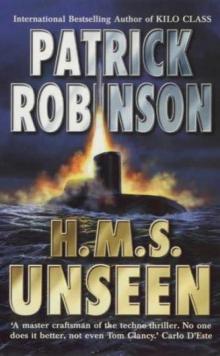 H.M.S. Unseen am-3
H.M.S. Unseen am-3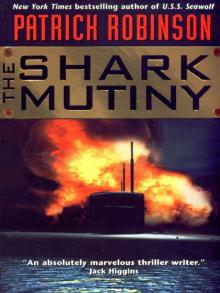 The Shark Mutiny (2001)
The Shark Mutiny (2001)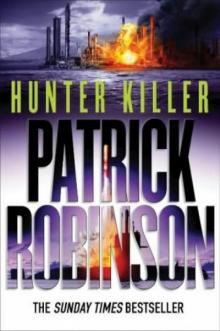 Hunter Killer am-8
Hunter Killer am-8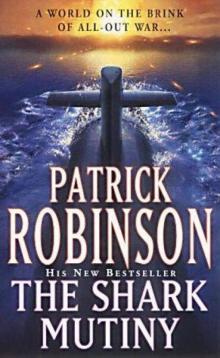 The Shark Mutiny am-5
The Shark Mutiny am-5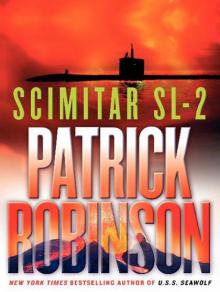 Scimitar SL-2
Scimitar SL-2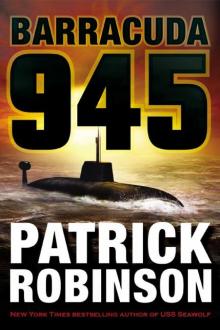 Barracuda 945 am-6
Barracuda 945 am-6 Hunter Killer
Hunter Killer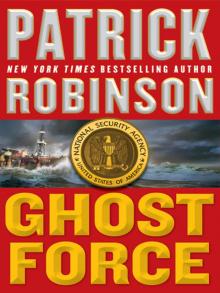 Ghost Force
Ghost Force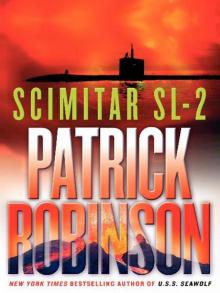 Scimitar SL-2 (2004)
Scimitar SL-2 (2004)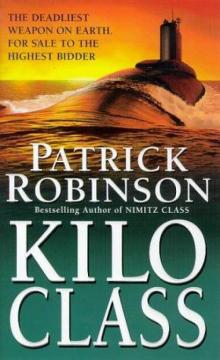 Kilo Class am-2
Kilo Class am-2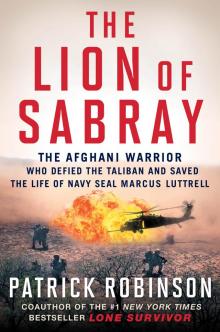 The Lion of Sabray
The Lion of Sabray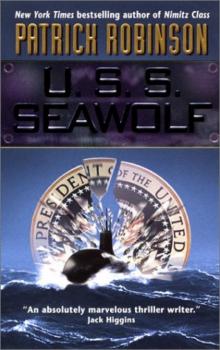 U.S.S. Seawolf am-4
U.S.S. Seawolf am-4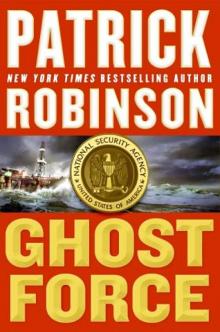 Ghost Force am-9
Ghost Force am-9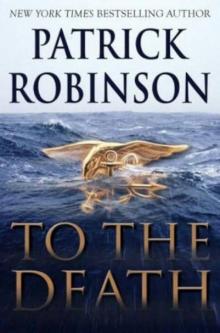 To the Death am-10
To the Death am-10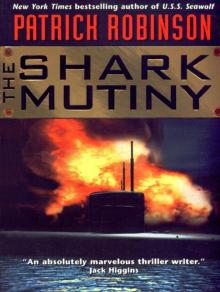 The Shark Mutiny
The Shark Mutiny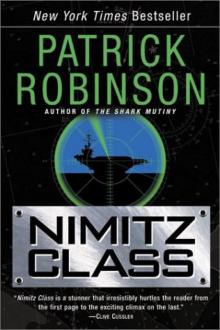 Nimitz Class am-1
Nimitz Class am-1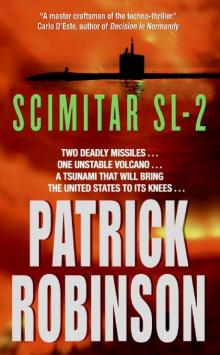 Scimitar SL-2 am-7
Scimitar SL-2 am-7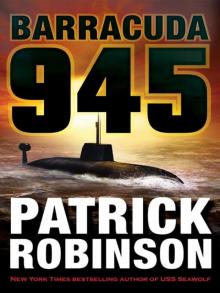 Barracuda 945
Barracuda 945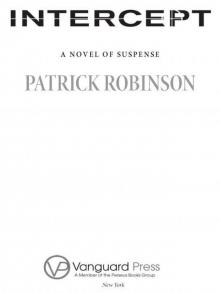 Intercept
Intercept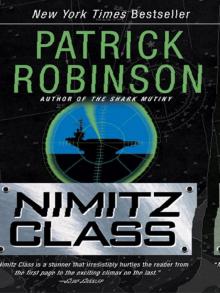 Nimitz Class (1997)
Nimitz Class (1997)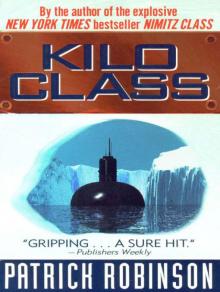 Kilo Class
Kilo Class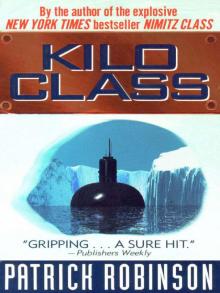 Kilo Class (1998)
Kilo Class (1998) Diamondhead
Diamondhead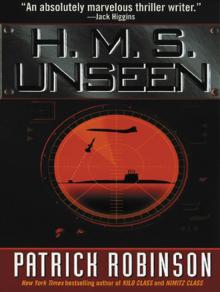 H.M.S. Unseen
H.M.S. Unseen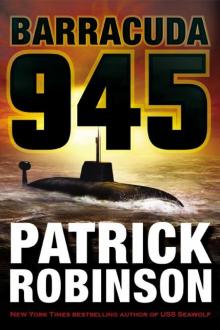 Barracuda 945 (2003)
Barracuda 945 (2003)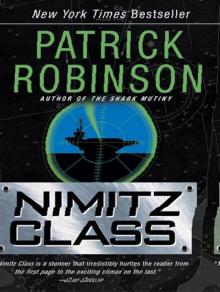 Nimitz Class
Nimitz Class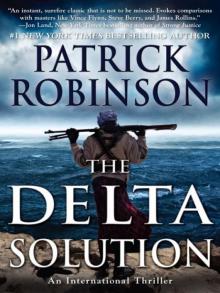 The Delta Solution
The Delta Solution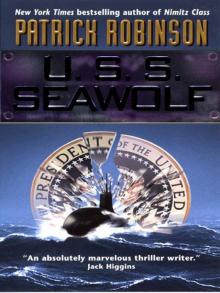 U.S.S. Seawolf
U.S.S. Seawolf